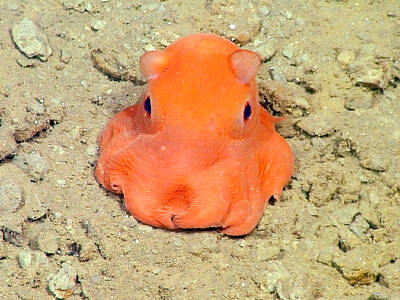Translation can be a tricky business. Some words and expressions have a clear equivalent in another language, but others just don’t translate easily. Here are a few Chinese ones with cultural connotations that make them hard to express simply in English.
Ji? You
Literally, this means “add oil,” but this phrase is frequently used as encouragement. Depending on the context, the expression can also be used to cheer people up after a disappointment, or wish people good luck. In English, each of these situations has its own saying.

Photo courtesy of Freepik / 照片:Freepik 提供
Xiao Shun
Your parents will approve of this phrase. The plain translation is simply “filial”— but the term carries so much more meaning in Chinese culture. It encompasses showing respect to one’s parents as well as treating them in a manner consistent with society’s expectations. Children are expected to listen to their parents, obey their instructions and spend plenty of time with them. Expressing the same concept in English takes a lot more words.
X?n K?
There are multiple uses for this term, so let’s discover what it means. It roughly translates as “laborious,” but that doesn’t tell the whole story. The term is used to show gratitude to people for their efforts on your behalf, as well as to express sympathy for people dealing with hard times. It can also be used to request a favor. This is definitely one hard-working expression.
加油
翻譯可以是一件棘手的事情。有些詞語和表達方式在另一種語言中有明確的對應詞,但有些卻無法輕易地翻譯。以下是一些因為帶有隱藏的文化內涵而難以簡單用英語表達的中文詞語。
字面上,這個詞的意思是「添加油料」,但這個詞語經常用於表示鼓勵。根據上下文,這個詞語也可以用於鼓勵人在失望之後振作起來,或祝人好運。在英語中,這些情境的每一種都有自己的說法。
孝順
你的父母會認同這個詞語!這個詞語單純的英文翻譯為「filial」──但在中國文化中,這個詞語承載了更多的含義。它包含對父母表示尊重,以及以符合社會期望的方式對待他們。孩子們被期望要聽從父母的話、遵守他們的指示,並花夠多的時間陪伴他們。用英語表達相同的概念需要更多字!
辛苦
這個詞語有多種用法,讓我們來看看它的意思。它大致翻譯為「laborious」,但這並不能表達它全部的含義。這個詞語用於感謝人們替你所做的努力,也用於對正在經歷困難時期的人表示同情。這個詞語還可以用於請求協助。這絕對是一個用途多到很辛苦的詞語!
MORE INFORMATION
untranslatable adj. 無法翻譯的
equivalent n. 對應詞
connotation n. 內涵;隱藏含意
literally adv. 字面上地
filial adj. 子女的;與子女對待父母的方式有關的
encompass vt. 包含
laborious adj. 勤勉的;辛勞的
on one’s behalf 代表某人
KEY VOCABULARY
1. translation n. 翻譯;譯文
translate v. 翻譯;轉化
Accurate translation of literary works requires a deep understanding of both languages and cultures. 文學作品的準確翻譯需要對兩種語言和文化都有深刻的理解。
2. tricky adj. 棘手的;難處理的
Learning a new language can be tricky, but practice and patience are the keys to success.
學一門新語言可能會很棘手,但練習和耐心是成功的關鍵。
3. approve v. 同意;讚許;批准 ; approve of sth 認同……
Helen’s parents don’t approve of her new job, but she likes her workplace.
雖然海倫的父母不認同她的新工作,但她喜歡她的工作場所。
4. expectation n. 預料;期待
The coach has high expectations for the team’s performance in the upcoming championship game.
教練對隊伍在即將來臨的冠軍賽中的表現寄予厚望。
5. roughly adv. 大約;粗略地
The population of the entire country of Canada is roughly equal to that of California, US.
加拿大全國的人口大約等於美國加州的人口。
6. sympathy n. 同情(心)
No one feels sympathy for Matt because what happened to him is his own fault.
沒有人為麥特感到同情,因為發生在他身上的事是他自己的錯。
7. request vt. 要求;請求
The company has requested that I provide two references as part of my application.
這間公司要求我提供兩封推薦信作為我申請書的一部分。
學習音檔: https://magazine.english4u.net/Magdata/menu/w54ih
《空中美語》雜誌APP免費下載: https://www.english4u.net/apps/index.aspx
免費收聽當月《空中美語》雜誌課文朗讀及解析 !
文章由AMC空中美語授權使用: https://www.english4u.net

The deep waters off the coast of California are home to a bizarre creature: the flapjack octopus. This creature, known for its pancake-like appearance, spreads itself thin on the seabed as a clever survival strategy, making it difficult for predators to spot and capture it. With its unique, umbrella-shaped body formed by webbed arms, the flapjack octopus moves through the water in a graceful manner. It propels itself forward by rhythmically moving its body and contracting its webbed arms. Its pair of ear-like fins, which move independently yet with remarkable coordination, also help it explore the deep-sea environment. These

Bilingual Story is a fictionalized account. 雙語故事部分內容純屬虛構。 I stand by the Miluo River as dusk falls. The court betrayal is too much. I served Chu with loyalty. I forged alliances and fought corruption. But the whispers of jealous courtiers, the murmurs of treason, spoke louder. The king cast me out. The water looks calm. It promises peace. I step in. The river is cold against my legs. I hear shouts behind me — fishermen calling my name. I keep walking. The calls grow louder, but I do not turn around. The water rises to my chest. It pulls at me. I

In Taiwan, people can use a platform to rent a power washer for a weekend or share unused garage space for someone’s storage needs. These are examples of the sharing economy, a consumption model that has gained widespread adoption worldwide. This approach allows people to rent or share assets like cars, homes or even services, typically through online platforms. This innovative model poses a simple yet powerful question: why purchase infrequently used items when sharing is more practical? By making useful but idle resources accessible, the sharing economy turns them into sustainable opportunities. Internationally, platforms like Airbnb and Uber have popularized

Continued from yesterday(延續自昨日) https://www.taipeitimes.com/News/lang Many people may be familiar with flapjack octopuses thanks to Pearl, a charming character from the Pixar film Finding Nemo. However, her portrayal presents several scientific inaccuracies. In reality, flapjack octopuses are deep-sea creatures, which are unsuitable for the brightly lit shallow reef environment depicted in the film. Their primary defense mechanism relies on their reddish coloration, which would be ineffective in the well-lit shallows. Pearl’s famous line, “You guys made me ink,” is another fictional detail that is not consistent with the observed actions of real flapjack octopuses. As common as it is in many other octopus